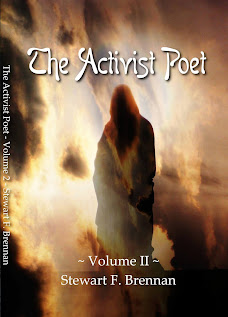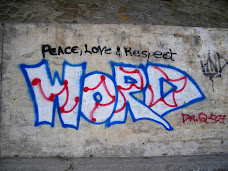
By: Gareth Porter – Truthout
In 2004, the International Atomic Energy Agency (IAEA) revealed that a member state had violated its Safeguards Agreement by carrying out covert uranium conversion and enrichment activities and plutonium experiments for more than two decades. The nature of certain of those enrichment activities, moreover, raised legitimate suspicions of interest in a nuclear weapons program.
The state was found to have lied to the IAEA even when it began investigating these suspicious activities, claiming that its laser enrichment research did not involve any use of nuclear material.
If that sounds like a description of Iran's troubled relationship with the IAEA up to 2004, that's because it bears striking resemblance to it. In fact, however, it is a description of the deception of the IAEA by the government of South Korea.
There was just one major difference between the South Korean and Iranian cases: Iran never enriched uranium at a level that could only represent an interest in nuclear weapons, but South Korea did.
Yet the IAEA treated Iran as a state to be investigated indefinitely, after failing to give South Korea even a slap on the wrist.
Even more remarkable is the fact that the two cases were the subject of IAEA reports issued within the same week in November 2004.
Three months before the report on its nuclear activities was published, South Korea admitted doing everything in violation of its Safeguards Agreement that Iran was found to have done up to 2003.
In the early 1980's, South Korea had carried out uranium conversion in a facility that was kept secret from the IAEA. It had also secretly extracted plutonium from a hot cell, and had carried out at least 10 covert uranium enrichment experiments from 1993 through 2000 using undeclared natural uranium metal.
South Korea had used 3.5 kg of natural uranium metal for its unreported enrichment experiments; Iran had used 8.0 kg of natural uranium for the same kind of experiments.
But by far the most important finding by the IAEA was that, during a series of covert experiments in uranium enrichment using atomic vapor laser isolate separation (AVLIS) in 2000, Korean scientists enriched the uranium to 77 percent. South Korea finally admitted that experiment in its August 2004 declaration to the IAEA.
"Not only did they have an undeclared uranium-enrichment program, but they were actually making something close to bomb-grade, so you have to conclude someone wanted to develop a capability to make nuclear weapons," said David Albright of the Washington-based Institute for Science and International Security after the Korean violations were revealed.
Despite covert activities that could only be reasonably interpreted as evidence of an intention to develop nuclear weapons, however, Seoul was given what amounted to a free pass. .
After its August 2004 confidential admission to its covert activities, South Korea mounted an aggressive diplomatic offensive, aimed at avoiding any legal consequences.
First, South Korean officials put pressure on IAEA Director General Mohamed El Baradei not even to disclose the enrichment in his report to the Governing Board. The South Koreans threatened to undermine El Baradei's reelection bid, according to a Nov. 25, 2004 Washington Post story.
El Baradei was well aware that South Korea's ally, the George W. Bush administration, was seeking to oust El Baradei, because of his refusal to conform to U.S. policies toward Iraq and Iran.
Meanwhile, the Bush administration had made no secret of the fact it wanted the IAEA Board of Governors to call for Iran to be reported to the U.N. Security Council.
U.S. officials understood that the South Korean covert enrichment and other violations were, if anything, worse than those of Iran. At least some officials were prepared to support a resolution in the IAEA Governing Board to send Korea's case to the Security Council in order to establish a precedent that could then be applied to Iran, according to the Post story.
But the British, French and Germans were negotiating with Iran on an agreement under which Tehran would maintain its suspension of uranium enrichment, and they were threatening to send the Iranian file to the Security Council if Iran did not agree.
Given those negotiations, El Baradei felt no need to write a report that would be the basis of a resolution from the IAEA Board of Governors in late November 2004 to refer the South Korean case to the U.N. Security Council.
El Baradei's Nov. 11, 2004 report on South Korea confirmed that enrichment had gone as high as 77 percent but did not raise the obvious question of whether its covert nuclear activities had been military-related.
It recounted without comment the South Korean authorities' explanation that both the plutonium and uranium enrichment experiments had been "performed without the knowledge or authorization of the Government".
Given the fact that South Korea had admitted that the covert uranium
enrichment had been carried out by no less than 14 government scientists, an IAEA investigation was obviously in order. But the report gave no hint that there was any need to find out who had authorized it and why.
In effect, El Baradei's report on South Korea effectively eliminated the issue from the agency's agenda.
Three days after the report, Iran reached agreement with the Europeans on a
voluntary suspension of enrichment and more negotiations. Since there was no chance of getting the Iranian case referred to the U.N. Security Council,
Secretary of State Colin Powell told the South Koreans at a meeting in Chile
that the United States was now prepared to "accept Seoul's explanation" for
its covert enrichment to bomb-grade levels.
That clearly signaled that the United States had decided against a resolution to send the South Korean case to the Security Council after the European agreement with Iran.
The subject of South Korea's violations of its Safeguards Agreement was
never raised again at an IAEA meeting. In 2007, an IAEA Safeguards report
said the agency was "able to clarify all issues relating to past undeclared
activities".
It offered no explanation for the enrichment to bomb-grade levels and the
obvious official falsehoods surrounding the activities, or for its own
acquiescence in it.
In contrast to El Baradei's lack of curiosity about the obviously suspect
official South Korean explanations for its bomb-grade enrichment, his report
on Iran, issued four days later, concluded that it would "take longer than
in normal circumstances" to "conclude that there are no undeclared nuclear
materials or activities in Iran".
The report suggested the IAEA would continue to pursue what it called "open source reports relating to dual use equipment and materials" in Iran. That meant that any technology, not matter how innocent, would now be treated as evidence of an Iranian covert nuclear weapons program.
The double standard of treatment of the South Korean and Iranian cases implied that the United States had hard intelligence that Iran had exhibited an interest in nuclear weapons, whereas South Korea had not.
However, the closest thing to such evidence in U.S. possession was a set of documents of uncertain provenance and authenticity.
On the other hand, nuclear physicists working in the Korean nuclear program, who had been recruited by the CIA, had reported in the mid-1970's that South Korea was carrying out a clandestine nuclear weapons program.
The stark contrast between the treatment of the Iranian and South Korean cases by the IAEA Secretariat and its Board of Governors is the most dramatic evidence of a politically motivated nuclear double standard practiced by the agency and its Governing Board, dominated by the United States.
And as the episode showed, that double standard essentially reflected the political-military interests of the U.S. government.



















a.jpg)

a.jpg)





No comments:
Post a Comment
Thanks for commenting on this post. Please consider sharing it on Facebook or Twitter for a wider discussion.